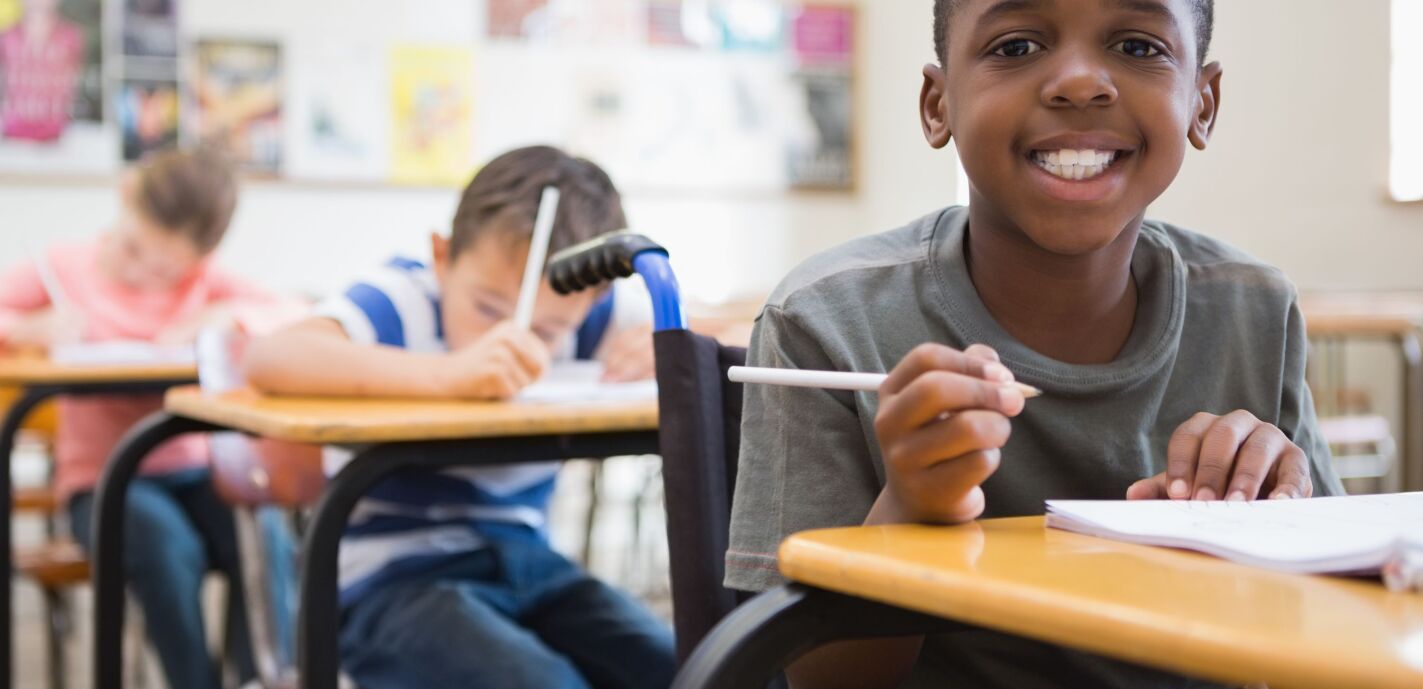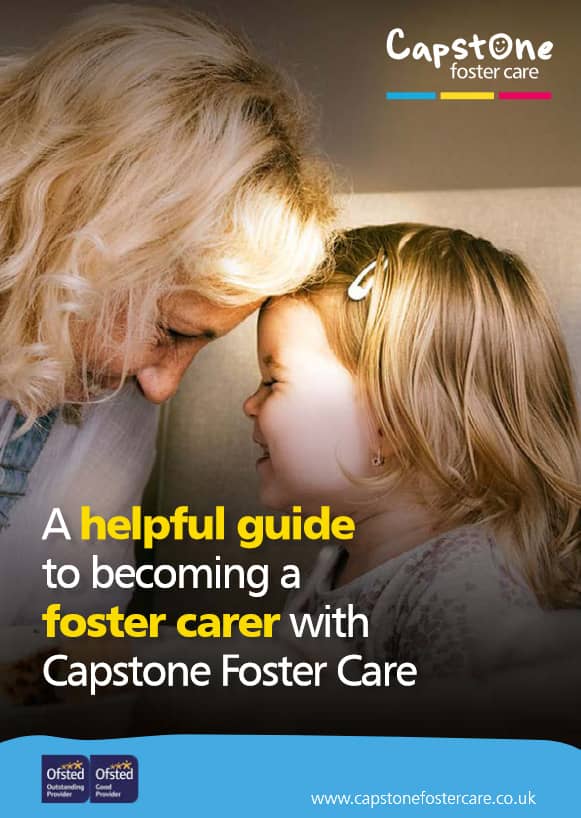


Fostering a disabled child
The role of an independent fostering agency
What support is available for foster carers?
How to choose a foster care agency
Foster Care Fortnight: How to raise awareness about children in foster care
Can I choose who I foster?
How to foster
What are the benefits of fostering with an independent fostering agency?
What happens when a child is taken into care?
Fostering process: what happens on an initial home visit?
Can you foster if you have mental health issues?
Fostering with local authority vs independent agency
Interview: Life as a foster parent during the pandemic
A complete guide to becoming a foster carer
How Are Children in Foster Care Matched with Carers?
Foster Care Budgeting Tips
Becoming A Foster Carer
Benefits of becoming a foster parent
What is a Care Leaver?
What is a Foster Carer?
What is Foster Care?
Do I become a Foster Carer?
Fostering Regulations
How much do Foster Parents get paid?
How to Foster a Child
How long does it take to become a Foster Carer?
How to foster – everything you ever wanted to know
Facts about Foster Care
What are the Foster Care requirements?
Foster Care Handbook
Foster Carer Job Description
Changing IFA - Transferring to Capstone
Fostering Definition
Foster Care Statistics
What does Every Child Matters Mean for Foster Parents?
Fostering Stories
Fostering Children UK
Children needing Fostering
Reasons for a child to be taken into Care
Fostering as a Career
Looked after Children
A guide to fostering assessments
LGBTQ+ Fostering
Equality, Inclusion & Anti-discriminatory Practice in Foster Care
What can disqualify you from foster care?
Can you foster if you’re on benefits?
Top transferable job skills to become a foster carer
Fostering as a same sex couple
Fostering while renting
Is there an age limit for fostering in the UK?
Do foster carers get a pension?
How to foster a child: A step by step guide
How do DBS Checks Work?
Can I foster if...?
Mythbusting the top 10 Foster Care Myths
Can I foster if I am disabled?
LGBT Fostering Mythbusting
Can I foster if I have pets?
Can I Foster A Child?
Can I Foster and Work?
Can you Foster with a Criminal Record
Can Single People Foster?
LGBT Family and Foster Care
Fostering across Cultures
Muslim Fostering
Christian Foster Care
Sikh Fostering
Empty Nest Syndrome and Foster Care
Can I Foster?
Fostering Babies and Young Children
Fostering Babies - Myths
Focusing on Parent & Child Fostering
Fostering Siblings
Fostering Teenagers
Fostering Teenagers - Breaking down the Myths
Fostering Unaccompanied and Asylum Seeking Children
Mother and Baby Foster Placements
Private Fostering
Therapeutic Fostering - Multi-disciplinary Assessment Treatment & Therapy Service (MATTS)
Young Children Fostering Placements
Difference between short and long-term fostering
Reunification and Birth Parents: A Guide for Foster Carers
How to prepare a child for becoming a care leaver
Children who foster: impact of fostering on birth children
Fostering LGBTQ+ Youth
How to prepare your home for a foster child
How to help a lonely child: A Guide for Foster Carers
What are the National Minimum Standards for Fostering Services?
10 tips for foster children's education
How to prepare your foster child for secondary school
Tips for coping when foster placements end
Tips for foster parents during Coronavirus
What happens if foster parents get divorced?
5 ways to manage Mother's Day with foster children
Tips for managing foster children's bedtime routines
How to handle foster child bullying
Fostering allowances and the gender pay gap
What discounts can foster carers get?
How to adopt from Foster Care
5 ways to manage Father's Day for children in foster care
8 most common fostering challenges
FosterTalk Membership with Capstone Foster Care
Supporting foster children's contact with birth families
A guide to independent fostering
Keeping Children Safe Online: A Guide For Foster Carers
Foster Care in TV and Film
Play-based learning strategies for foster carers
A Guide to the Staying Put Program
How to deal with empty nest syndrome
How to recognise signs of depression in foster children
Can you take a foster child on holiday?
Tips and advice on fostering with a disability
10 tips on connecting with your Foster Child
Fostering vs Adoption - What's the difference?
How Fostering can change a future
How to adopt from Foster Care
How to encourage children to read in Foster Care
How to prepare a Foster Child's bedroom
Reading and Storytelling with Babies and Young Children
Supporting Children's Learning
The 20 most recommended books Foster Carers and young people should read
Things you can do when your children leave home
The impact of early childhood traumas on adolescence and adulthood
Anxious Disorders in Foster Children
What is sexual abuse and sexual violence
Foster Child behaviour management strategies
Foster Parent Advice: What to expect in your first year of fostering
Capstone's twelve tips at Christmas
10 celebrities who grew up in Foster Care
Celebrating our Children and Young People
Could Millenials be the solution to the Foster Care crisis?
Do you work in Emergency Services?
Form F Assessor and Assessment Training
Foster Care Fortnight
Improving Children's Welfare - Celebrating Universal Children's Day
It's time to talk about Mental Health and Foster Care
New Year - New Career - Become a Foster Carer
Promoting the rights and wellbeing of persons with Disabilities
Refugee Week
Young people and Mental Health in a changing world
Young People Charities
No one should feel discrimination based on any aspect of who they are. December 3rd is the International Day of Persons with Disabilities. This is a time for our community to think about what this means to the children and young people in our society.
The International Day of Persons with Disabilities was proclaimed in 1992 by the United Nations General Assembly. The purpose and goal is to “promote the rights and well-being of people with disabilities in all spheres of society and development.” Beyond this, there is the goal of increasing awareness of the way that people with disabilities are situated in every facet of their political, social, economic and cultural life.
The Convention on the Rights of Persons with Disabilities was adopted in 2006. This has been instrumental in the continuing efforts to advance the rights and wellbeing of people with disabilities. There are numerous powerful frameworks at the international level that are emerging from the Convention, including the 2030 Agenda for Sustainable Development which pledges to “leave no one behind” and the Charter on Inclusion of Persons with Disabilities in Humanitarian Action.
In 2018, the International Day of Persons with Disabilities theme is “Empowering persons with disabilities and ensuring inclusiveness and equality.” This supports the 2030 Agenda by focusing on empowering people with disabilities for an inclusive, equitable and sustainable development.
This is an ambitious and necessary action that allows people with disabilities to be involved in the process of change. The change can create a world – a resilient society as the UN calls it – where everybody is included, with or without disabilities. As a team, all parties will work toward Sustainable Development Goals (SDGs).
The SDGs can be thought of as a blueprint for a more sustainable future for everyone. The goals are interconnected so each goal must be met for all the goals to be reached.
The Goals:
On 3rd December, the UN Secretary-General will release the UN Flagship Report on Disability and Development | 2018 – Realising the SDGs by, for and with persons with disabilities. The plan for the day is for a gathering at the United Nations headquarters of member states, UN entities, mayors, national and local policy makers, civil society organizations, academic institutes and organisations of people with disabilities. The comprehensive group will discuss how to move forward in achieving the goals.
The United Nation’s Secretary-General António Guterres, in addressing the 2017 World Children’s Day spoke about how children are fleeing deadly conflicts, going hungry, going without necessary medicine, being bullied online or in school, and being discriminated against because of their religion, the colour of their skin, or their ethnicity. He urged the global community to stop failing the children of the world.
In building a world where every child is in school, safe from harm, and able to fulfil their potential, children with disabilities must be included. It is essential that we leave no one behind. When we speak of children, the bottom line is that we speak of the child as a being who has a right to a bright, happy, and fulfilled life. When we can look at a child without seeing religion, colour, or ethnicity, we are moving toward a more inclusive and healthier world where the rights will be protected and ensured.
The value in having an International Day of Persons with Disabilities is that we can find ways to come closer to a world where disabilities do not turn a person with a disability into the “other”, the one who is somehow excluded from the opportunity to achieve the very best that he or she can achieve in his or her life.
The way toward this brighter future begins with awareness.
Secretary-General Guterres’s Message for 2018 begins with the words, “More than 1 billion people in the world live with some form of disability. In many societies, people with disabilities often end up disconnected, living in isolation and facing discrimination.”
Becoming aware of the large number of people with disabilities that there are in the world should be a good start to understanding the importance of finding ways to make our societies more accessible to these people, both in physical ways such as inclusive workplaces, and in attitudinal ways such as overcoming discrimination and isolation. The Secretary-General said, “It also means integrating the voices and concerns of people with disabilities into national agendas and policies.”
Having a good heart and hopes for a changed world where all people, disabled or not, are treated as the special beings that they are, and should be viewed from the moment of their birth, is one thing. Implementing the changes to the world where this can become a reality, is quite another.
The UN Flagship Report on Disability and Development 2018 outlines how this can happen. The Report notes that disability-based discrimination has had a severe effect in “housing, transport, cultural life, and access to public places and services.” A good place to start is with policies and programmes at the national level that can guide a disability strategy and plan of action. One important goal would be for all people to have access to all common systems and services. More research and data quality and availability on disability, better public awareness and understanding about disability, investment in programmes and services for people with disabilities, and adequate funding and improving affordability would all contribute to the type change that is needed.
At Capstone, we are inclusive and recognise the ability of all persons to contribute to building brighter futures. This was the foundation upon which were created in 2008. Regardless of the type of foster placement, each and every child is placed with the firm commitment to do our very best to provide the child with a bright and fulfilling life, the opportunity to learn, and protection from harm.
Because all our plans and actions stem from our six core values, our entire team is recruited, trained, and supported to value every child in our care. In Capstone’s world, the fact of being born entitles every child to the best that the world can offer. We promote excellent outcomes for children, have safeguards in place, help young people leaving care transition to independence, provide outstanding quality of service for foster carers and their families, are advocates for those we support, and invest in our staff.
When it comes to investing in our staff, we are always expanding our knowledge base and our level of expertise. Every success we have is built upon the strength of our team and the team’s strength comes from its basic building blocks, the individual components and how they interact. We have an extensive training programme that begins with the “Skills to Foster” course. Over two or three sessions, carers in training meet members of our staff, and families who are already fostering for Capstone. This is where you see how fostering really works and what is expected of you as a foster carer.
In “Skills to Foster” you learn what foster carers do, self-care techniques, how to help children deal with change, and first aid. You also learn how placements are made, the financial aspects of fostering, and how the application process works. This lays the foundation.
Core courses include more detailed information such as Child Protection & Safeguarding and Managing Behaviour. Beyond that there are specific courses such as Children with Disabilities. We work as a team in finding cutting edge initiatives in caring for children and the changing world around us. This is why we are presenting information about the International Day of Persons with Disabilities.
Each child is unique, so it is not possible to have a “one size fits all” approach to fostering and caring for children and young people. However, because there are similarities among people, we have speciality training for situations that might arise depending on the age of the child in care, such as depression, sexuality, and educational achievement. There are approximately 70,000 young people in care in the UK, and not all eventualities may be covered in the training. We have trained specialists available to work with our carers in specific situations.
Ongoing training is offered on a regular basis in attachment disorders, managing challenging behaviour, internet safety, children and young people who self-harm, and learning disability awareness. Pertinent to the special Day on 3rd December, we have specialised training for carers who have the skills and desire to work with children and young people with more complex needs or disabilities.
When there are international days such as this one, the expertise and intelligence that goes into bringing the global picture to the forefront is astronomical. Some of these insights and facts may be brand new to local communities simply because we are not always cognisant of the number of people with disabilities and the shortage of policies and programmes that are available to them.
In fostering, when children are taken into care by local authorities and placed in foster care, there are many issues to consider such as how long before the child may return to his or her birth family, the child’s health and safety, and the circumstances of the child home life to this point in time.
Capstone Foster Care has been proactive in finding ideal foster families across the UK to meet the needs of the children and young people for whom we are responsible. We are proud of the goal we have – building brighter futures. To this end, we have created policies and programmes that ensure that we do this to the best of our abilities. This means that we have the means and methods of providing training for any special needs or requests that might arise.
Our foster carers who care for children with disabilities begin with the same basic skills that all carers have – patience and commitment. There is specialised training for this type of foster care. The foster parent may participate in training that includes learning special medical and communication skills.
We are fortunate to have access to the expertise that allows us to tailor the training to the type of disability, which may be a physical disability, a medical condition, or a learning disability which can range from autism to hyperactivity to a range of cognitive disorders. In the Declaration of the Rights of the Child, one of the principles is that physically, mentally or socially disadvantaged children are entitled to special treatment, education and care required by his or her condition. Capstone provides the emotional and financial support to allow this to happen.
3rd December, the International Day of Persons with Disabilities, is the type of day that provides hope for a brighter future for society. Change can take a long time to seep into the global culture but it can be carried out in small moves toward a common goal. Each day that a child with disabilities is given the chance to achieve the brighter future that is his or her right from the moment of birth, the world is one step closer to being inclusive.
At Capstone, we know that we cannot change the world all at once. We know that we can change the life of a child. Changing the nature of society to be more inclusive is similar to being a foster carer. It begins with patience and commitment.
If you’ve got any questions or would like to find out more about fostering with Capstone, fill out the form below.
An experienced fostering advisor from your local area will then be in touch.

Start the conversation today. Our team of friendly advisors are on hand to answer any foster care questions you may have. We can offer you honest and practical advice that can help you decide if becoming a foster carer is the right path for you.


